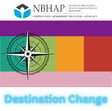
Episode 27: Gina Thorne with GTC Consulting
Gina Thorne brings three decades of expertise in behavioral health, specializing in business development and marketing. Her extensive background spans private and public sectors, working with in-patient treatment centers, psychiatric hospitals, and educational institutions across several states, including Florida, New York, and Colorado.
Gina has been instrumental in leading marketing, alumni relations, and admissions efforts for prominent treatment programs on both coasts. Her achievements include co-founding the Colorado Professional Liaison Association (CO-PLA) and serving in key roles like Board Co-Chair for Treatment Professionals in Alumni Services (TPAS). With a deep understanding of mental health and substance use disorder treatment, Gina excels at collaborating with revenue-generating departments to drive sustainable census growth. In 2021, she launched GTC Consulting, focusing on overcoming barriers to growth and enhancing organizational visibility within the behavioral health landscape.





